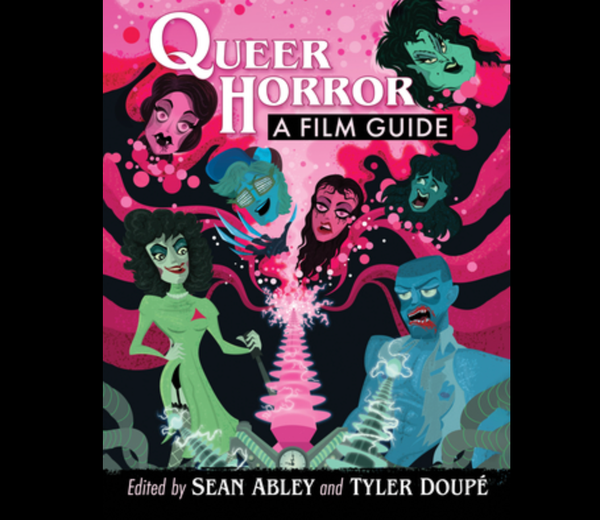Naemi Victoria looks at the creative highs in Paul Sng's documentary on Irvine Welsh, Reality Is Not Enough.
“Life can only be understood backwards; but it must be lived forwards,” observes Danish philosopher Søren Kierkegaard. Paul Sng’s latest documentary, Reality Is Not Enough, takes this quote to heart and delves into the life and cultural legacy of Scottish writer Irvine Welsh, who made his literary debut with Trainspotting in 1993.
Three decades after its publication, Welsh is in his sixties and more conscious of mortality. To discover uncharted territories of his mind, he embarks on a psychedelic ‘pre-life’ experience at a drug therapy centre in Canada. The visit provides the backbone of the documentary’s narrative, which elevates observational footage of Welsh’s corporeal reality, lying on the floor wearing an eye mask, to a cinematic memento mori. Hypnotic shapes of light dance across the screen as passages from Welsh’s work resonate through this imagined memory space, voiced by actors such as Ruth Negga, Liam Neeson and Maxine Peake.
By interspersing abstract patterns with scenes from Welsh’s life, Reality Is Not Enough rejects the certainty of talking heads. It explores the writer’s imagining of different realities and raises questions about life, art and belonging.
Wearing a white suit, Welsh’s illuminated figure stands in a dimly lit industrial space in Edinburgh. He blends in seamlessly with clips from Trainspotting that are projected onto the walls. In it, a younger Welsh performs the role of drug dealer Mikey Forrester. The camera captures both versions of the writer and intertwines the ‘then’ with the ‘now’.
In 1996, when the tumultuous adventures of Mark Renton and his mates were unleashed in cinemas, the film adaptation of Welsh’s novel was praised as an unlikely success and heralded a new golden age for the British film industry. With its pounding techno tracks, it disrupted the quaint lyricism of heritage cinema and the touristic flair of Edinburgh’s cobbled streets and scenic beauty. In keeping with Welsh’s male-centred novel, the film spotlighted previously overlooked lives in Edinburgh and rejected middle-class aspirations with its defiant nihilism. Considering the hegemony of neoliberalism today, its themes remain topical, perhaps even more so than in the 1990s. “Not his best book though,” Welsh notes.
Welsh comes across as a man who wants to live life to its fullest. This mindset differs quite significantly from the idea of a secluded writer holed up in their apartment, typing away with a lovely cup of tea. An image that could not be further off, as I learn in my chat with director Paul Sng. Rather than being “just” the Trainspotting guy, the documentary shows Welsh in a variety of social settings. He is a sports enthusiast, DJ, globetrotter, friend and husband. In other words, the writer keeps busy and is always on the move.
With a keen eye on the future, there is little space for sentimental reminiscing in the past. Back at the warehouse in Edinburgh, Welsh reflects on growing up on a council estate and how first-hand experiences with class inequality sparked his rebellion against authority. Place shapes identity and vice versa. The link between the two is also a central feature of Welsh’s writing, which often returns to his hometown, Edinburgh. From drug addiction to corruption and tapeworms, his stories home in on the more harrowing aspects of society and masculinity with a biting sense of humour.
There is an underlying sense of restlessness in Welsh’s pursuit of the new. Angela Slaven’s well-timed editing highlights the allusive nature of the writer’s controversial persona by paralleling moments from his life with artistic snapshots from his writing. The edit, Paul mentions in our conversation, was guided by the Kierkegaard quote, which suggests that the ‘next thing’ always defines itself in relation to what came before. Since his literary debut, Welsh has written a series of novels, short stories, screenplays and stage plays. His latest book, Men in Love (2025), was published earlier this year and transports readers back to the late 1980s and the familiar characters from Trainspotting.
The Thatcher years are a cultural moment of great interest to Welsh. Having lived through them, he witnessed the miners’ strike and the spark of genuine hope for defeating Britain’s reduction of social commitments. In hindsight, this optimism is lost to the knowledge of what came after. The documentary’s title, Reality Is Not Enough, alludes to the haunting absence of the strike’s success, which might also be why contemporary culture so frequently revisits this particular decade and turns it into an object of nostalgic longing. A longing not for a return to that time, but for what seemed possible back then, and for whom.
Returning to where it all began, namely Welsh’s hometown of Edinburgh, the documentary celebrates its world premiere on the closing night of the Edinburgh International Film Festival. Much like the Kierkegaard quote that inspired it, Reality Is Not Enough reflects on the life and work of Irvine Welsh by joining him in the present. It offers a thought-provoking Welsh-on-Welsh commentary that investigates the boundaries between reality and fiction.
Reality Is Not Enough opens in limited cinemas on 26th September 2026.









